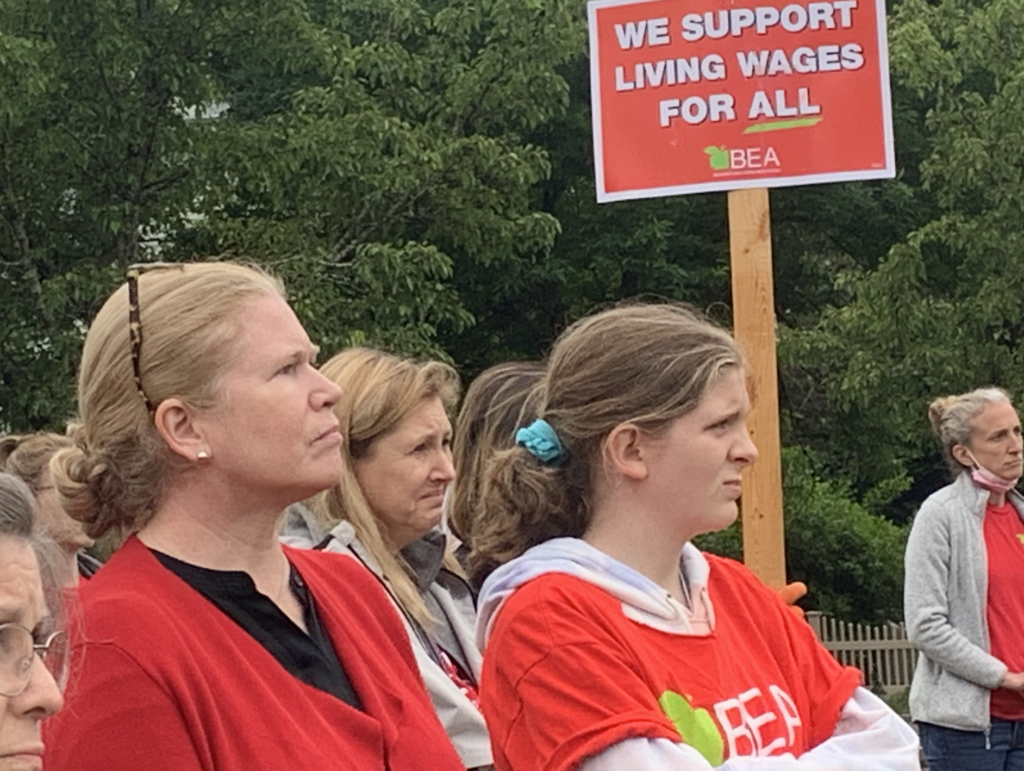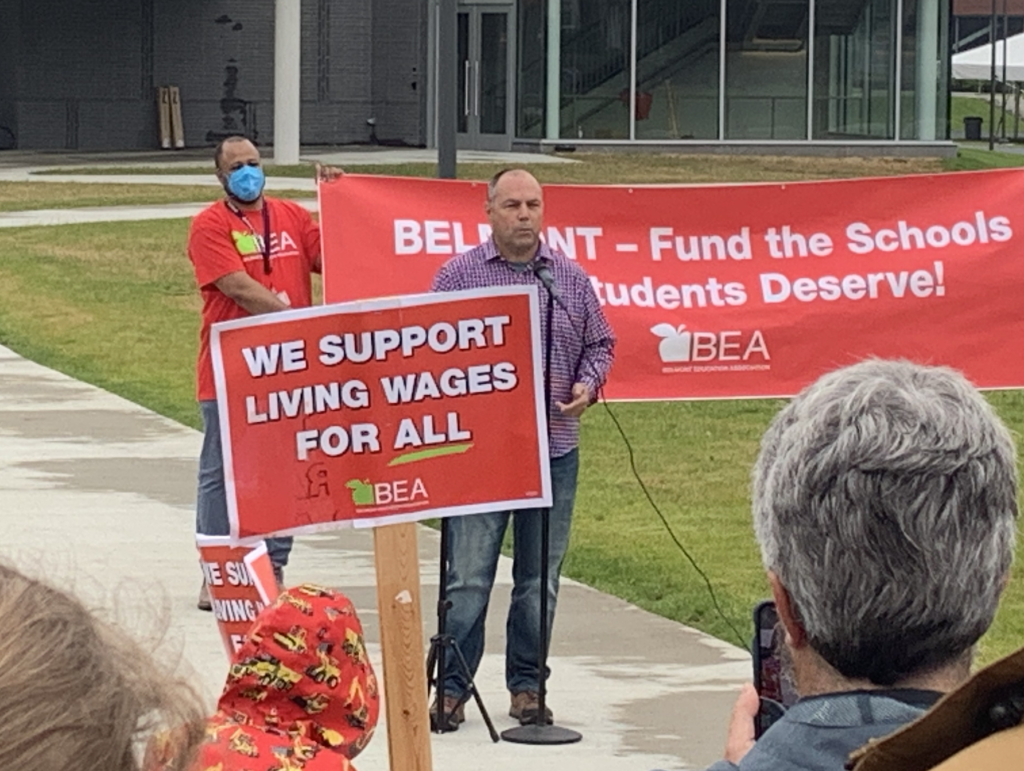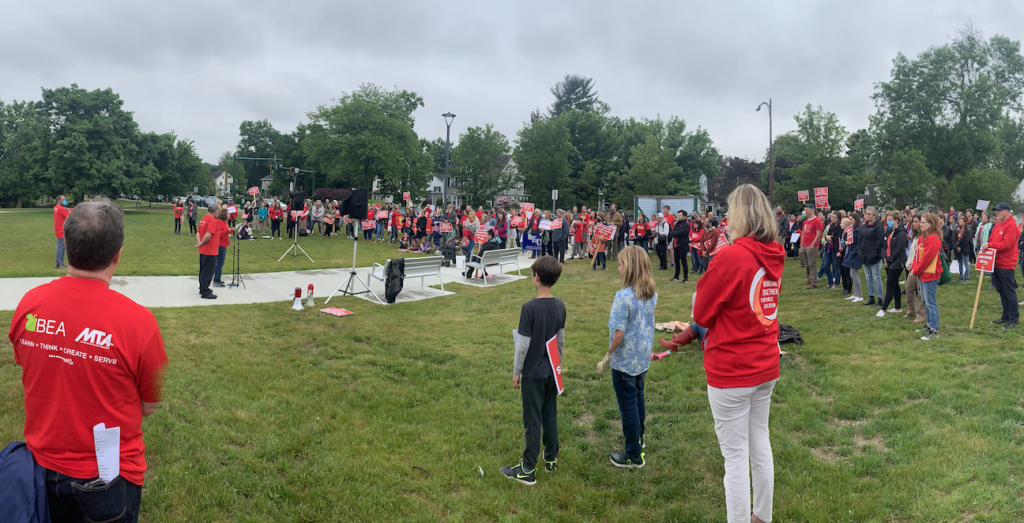Photo: Dr. Jill Geiser during a Q&A with Belmont residents
After, at times, a contentious selection process, the Belmont School Committee voted to appoint Belmont resident Dr. Jill Geiser as the school district’s next superintendent at a special meeting on Wednesday, March 29.
“[Geiser] accepted right away, enthusiastically,” said Committee Chair Meghan Moriarity when she called the Oxford Avenue resident with the news immediately after the 5-1 vote.
The selection of Geiser marks the first permanent female superintendent in Belmont. Dr. Patricia Aubin served as interim superintendent for one year between the superintendencies of Dr. Peter Holland and Dr. George Entwistle.
“It’s pretty remarkable that it’s taken this long!” wrote Moriarity in an email to the Belmontonian.
The other candidates were Kimo Carter, the assistant superintendent in Weston, and Carlee Simon, the former superintendent of schools in Alachua County, Fla.
Geiser replaces John Phelan, retiring after holding the post for the past decade. If both sides approve a three-year contract, Geiser’s tenure as leader of a district with approximately 4,400 students and nearly 283 FTE teaching positions will begin July 1. Moriarity said the district would hold “some events and opportunities for the community to get to meet her … even before July 1.
With a Belmont Police Officer stationed at the door of the Belmont Gallery of Art in the Homer Building and roughly a dozen in attendance, the committee spent a considerable amount of time reviewing the candidates’ credentials and reactions to their district visits in mid-March with committee members, teachers, students, and community members.
By the time the committee members spoke on what they believed were important for the district to advance in the next three years, it became clear the committee would be selecting from the pair of Belmontian candidates, Carter and Geiser.
When what would be the only straw poll was taken, Geiser received the first four votes from member Jamal Saeh, Katie Bowen, Moriarity and Amy Checkoway before Carter received the last two recommendations from Mike Crowley and Jeff Liberty.
Liberty spoke of Carter’s accomplishment in completely turning around the education proficiency and management of Watertown Middle School which he headed for 13 years.
Saeh also focused on leadership for his support of Geiser, relating to a reference who called the Billerica assistant superintendent “smart and battle tested … relentless about doing the best” … “and forged by fire” when she participated in two major system changes.
“At this point, Geiser is ready for Belmont,” said Saeh.
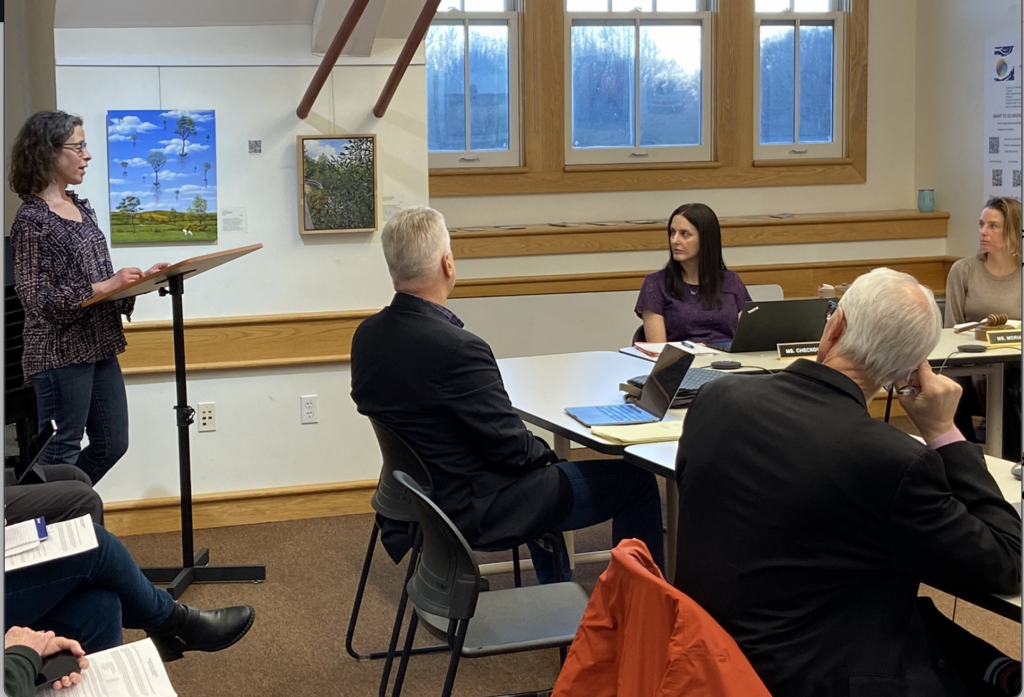
Checkoway said Geiser would have less of a transition in coming to Belmont, which Moriarity seconded, noting “she is really attuned to what’s going on in Belmont, the politics and how the town operates” and that “she shared values and beliefs that match our community.”
“She mentioned that if she were coming here, she would really want to reinforce and continue and celebrate what going on but also drive towards academic excellence and the experience of Belmont,” said Moriarity.
“It’s good to have somebody that has that vision for improvement on what we have.”
Liberty said a powerful reference for Carter that when responding to conflict, it was “never with anger.”
“That suggests a certain emotional maturity that one needs to have in this role,” said Liberty, who pointed to Carter’s complete turn around of Watertown Middle School as its principal for 13 years.
When the final vote was taken, Crowley switched his straw poll recommendation and voted for Geiser with Liberty the sole ‘no’ vote.
The vote ended what a portion of residents and those who participated in the selection exercise felt was a flawed process with many pointing to the school committee’s management of the process, which included an abbreviated time frame, questions of transparency and a conflict between the selection and school committees – both sides issued articles on the dispute – that resulted in heated comments online.
After the meeting was adjourned, Moriarity said while she was happy to defend the process, “I think there is evidence that there is still a lot of frustration in the district amongst parents. And that makes me sad. I was hoping that this process would really help bring the community together.”
“We really tired to gather as much feedback as possible and involve as many people in the visits,” said Moriarity, noting that a superintendent candidate survey was employed which nearly 200 people participated as well as the creation of vetting groups of various constituencies including students that advised the committee.
“I think there’s obviously still more that needs to be done and we need to play a role in that. I really hope that [Geiser] can help with that,” said Moriarity.
“I don’t dismiss their feelings at all. I really value their feelings. But I also don’t dismiss the process.”
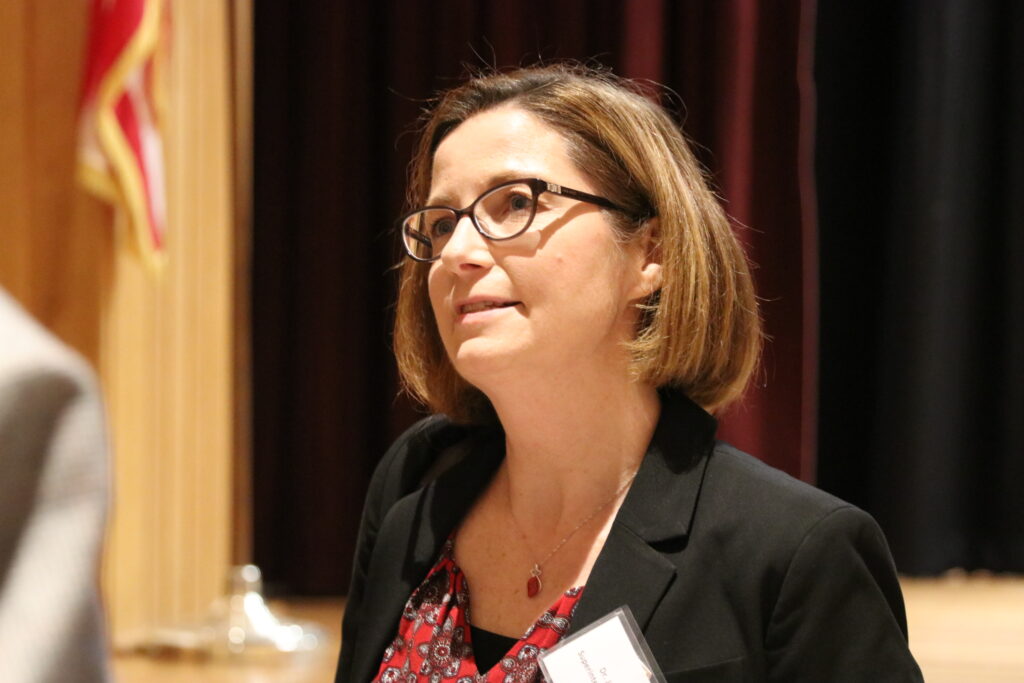
About Jill Geiser
Joining the Billerica school system in 2017 as the assistant superintendent to Tim Piwowar (who, coincidently, was appointed the next superintendent in Westwood on Monday), Geiser was the principal of the Pre K-8 Healey School in Somerville from 2012. She also served as a middle school principal and high school assistant principal in the Lawrence schools. In addition, she is an adjunct professor at Boston College’s Lynch School, taught in Arizona and New York City, was a foreign language instructor in Thailand, and spent two years in Nepal as a Peace Corps volunteer.
Geiser holds a doctor of education degree from Boston College and graduate degrees from the Teachers College at Columbia University and UMass/Boston. In addition, she enrolled at the University of Delaware where she earned a Bachelor of Arts.
